US Limits Vessel Calls at BP Cherry Point Marine Terminal
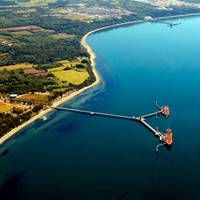
The U.S. Army Corps of Engineers will modify the Department of the Army permit for the BP Cherry Point Marine Terminal’s North Wing dock to ensure complies with the Magnuson Amendment’s restrictions regarding the handling of crude oil at Puget Sound facilities, and Endangered Species Act and other applicable legal requirements through additional permit conditions. This comes from the Record of Decision issued Monday, following completion of a Final Environmental Impact Statement…
BP Cherry Point Terminal Final Environmental Impact Statement Released
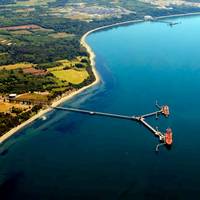
The U.S. Army Corps of Engineers has released the Final Environmental Impact Statement for the North Wing of the BP Cherry Point Marine Terminal, which is located near Ferndale, Wash. The Notice of Availability was published in the Federal Register by the Environmental Protection Agency today.The Final EIS examines the incremental environmental effects related to operation of the North Wing of the BP Cherry Point Marine Terminal, the risk of potential accidents and oil spills within a portion of Puget Sound…
DOI Issues FSEIS for Chukchi Sea Lease Sale
The U.S. Department of the Interior (DOI) released a Final Supplemental Environmental Impact Statement (FSEIS) for Chukchi Sea Lease Sale 193, moving the DOI a step closer to resolving federal court concerns regarding the 2008 oil and gas leases offshore Alaska. The FSEIS updates the Bureau of Ocean Energy Management’s (BOEM) estimates of the full range of production levels from offshore oil fields that might be developed in the Chukchi Sea as well as the related potential environmental effects of the lease sale. “Alaska is a critical component of our nation’s energy portfolio, and the Chukchi Sea has substantial oil and gas potential, as well as sensitive marine and coastal resources that Alaska Native communities depend on for subsistence,” said Secretary of the Interior Sally Jewell.
Court Delivers Blow to Alaskan Arctic Oil Prospectors
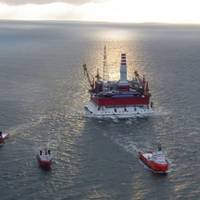
A three-judge panel of the U.S. Ninth Circuit Court of Appeals has issued a ruling against the Department of Interior and oil companies including Shell in favor of environmental and Alaska Native groups and concluded the federal government failed to properly evaluate the scale of oil production that could result from offshore lease sales in 2008, reports Anchorage Daily News. According to groups cited by Anchorage Daily News that oppose drilling in the Arctic (including the Alaska Wilderness League…
The Bisso Doctrine
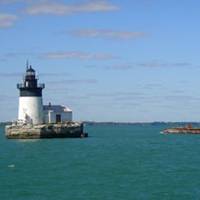
The Bisso Doctrine takes its name from the 1955 U.S. Supreme Court case, Bisso v. Inland Waterways Corp., in which it was established in a majority opinion of the Court that exculpatory clauses in towing contracts are invalid as a matter of public policy. That decision has had serious impact on the United States towing industry, and has affected decisions on whether to make U.S. choice of law and forum applicable to towing contracts where there were other options. It nonetheless remains the law of the land.
State Seeks Intervention in Drilling Case
Governor Sean Parnell has directed the Department of Law to ask the Ninth Circuit Court of Appeals for permission to intervene in the lawsuit by environmental groups challenging the U.S. Interior Department’s decision to approve an oil exploration plan for the Chukchi Sea. “OCS exploration and development will increase jobs and revenue for Alaskans and for all Americans,” Governor Parnell said. The state previously was granted intervention in a separate case brought by many of the same plaintiffs against an exploration plan for the Beaufort Sea. In both cases, the state has sought intervention due to the economic importance of offshore oil and gas production.
Supreme Court Accepts Navy Sonar Requests

On June 23, 2008, the Supreme Court accepted a request by the Navy that the Court review a series of lower court rulings that restrict the Navy's use of sonar in training exercises off the coast of . The original injunction, handed down in August 2007 by a U.S. District Court in and later amended, was affirmed by the Ninth Circuit Court of Appeals in February. In March, the Navy requested the review that the Supreme Court has now accepted. "My primary job is to ensure that Navy ships in the Pacific are prepared to fight and win in combat," said Vice Adm. Samuel J. Locklear, Commander, U.S.
A Tidal Wave of New Regulations
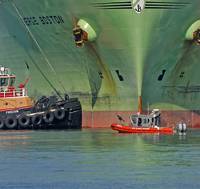
The management ballast water discharges began with the enactment of the Nonindigenous Aquatic Nuisance Prevention and Control Act of 1990 (NANPCA) as an effort to prevent the introduction of additional invasive species into the Great Lakes. Since then, NANPCA was amended by the National Invasive Species Act of 1996 and the issue has progressed over the intervening years to a much larger campaign to regulate all vessel discharges into U.S. waters. Ballast water management has been the subject of litigation, regulation, and legislation at the state and federal level.
Supreme Court Rules Federal Law Preempts State Tank Vessel Regulations
A unanimous Supreme Court ruled the state of Washington overstepped its authority in attempting to regulate the operation of tank vessels in state waters. The Court's 9-0 decision in the closely watched case (Intertanko v. Locke, United States v. Locke) reversed the June 1998 decision of the Ninth Circuit Court of Appeals upholding most of the state's "Best Achievable Protection" (BAP) standards for tank vessels. The Court found sufficient evidence to declare four of the Washington regulations unconstitutional and remanded the case so the validity of the others may be assessed by a lower court "in light of the considerable federal interest at stake and in conformity with the principles" set forth in the Supreme Court decision.
Coalition Seeks to Block Alaska Oil, Gas Permit
A coalition of Native tribal governments, commercial fisherman and environmentalists has filed an administrative appeal to block a wastewater discharge permit for oil and gas operators in southern Alaska's Cook Inlet, Reuters reported. The appeal, filed in the Ninth Circuit Court of Appeals, challenges a general permit issued by the Environmental Protection Agency that allows established oil and gas production facilities to discharge wastes directly into the inlet's marine waters. The new permit, scheduled to go into effect on July 2, covers 16 offshore oil and gas platforms and three onshore facilities in Cook Inlet, said Dianne Soderlund, communications coordinator for EPA's Alaska oil and gas section.
Fishing Vessel Master's Violates Primary Duty
In Northern Queen, Inc. v. Kinnear, 2002 WL 1799711 (9th Cir. August 7, 2002), the U.S. Ninth Circuit Court of Appeals held that Blake Kinnear, master (and 22 percent owner) of the F/V LIN J, violated the primary duty rule when the vessel sank in icy waters of the Bering Sea in March 1999, relieving the vessel's owner, Northern Queen, Inc.--77 percent owned by his wife and one percent owned by his minor daughter--of liability for his death. Northern Queen initiated the suit by filing a claim under the Limitation of Liability Act, seeking to limit the vessel owner's liability to the post-casualty value of the vessel together with her pending freight.
Great Lakes States to Address Ballast Water Issue
Attorney General Jennifer M. Granholm has joined Attorneys General from around the Great Lakes states in filing a brief in the Ninth Circuit Court of Appeals that asks the Court to order the United States Environmental Protection Agency (EPA) to address the problem of aquatic nuisance species in the ballast water of Great Lakes ships. In a "friend of the court" brief filed jointly with the states of New York, Minnesota, and Illinois, Granholm asked the EPA to repeal its exemption of ballast water from federal Clean Water Act (CWA) regulations. Currently, the CWA requires sea-going vessels that discharge pollutants to obtain a permit, but ballast water is exempt from the requirement.
Supreme Court Orders Review Of W. Coast Tanker Rules
INTERTANKO's long fight to overturn what it sees as unfair and damaging tanker legislation in the U.S. West Coast region is gaining ground, as on Friday, September 10, 1999, the U.S. Supreme Court issued a writ to the federal appellate court that reviews decisions in the western U.S. directing a review of that court's disposition of litigation challenging tanker regulations imposed by the State of Washington. The challenged Washington State regulations imposed on U.S. and foreign tankers carrying oil in Washington waters a number of unique regulations governing on-board equipment, technology, crew training and qualifications, and operational requirements.
Supreme Court Orders Review Of West Coast Tanker Rules
The proliferation of national, regional and local regulations which effectively dictate the design and outfitting of oceangoing ships are viewed with great disdain by the international shipping community, which contends that - given the shipping industry's global nature - that only one organization, the International Maritime Organization (IMO), should be empowered to implement sweeping changes. Local populations and politicians, however, who view ships at sea as a real threat to valuable local environmental havens - whether deserved or not - attempt to staunchly defend their territory under the shield of restrictive rules and regulations.
INTERTANKO Applauds U.S. Supreme Court Action
On Friday, September 10, 1999, the United States Supreme Court issued a writ to the federal appellate court that reviews decisions in the western U. S. directing a review of that court's disposition of litigation challenging tanker regulations imposed by the State of Washington. INTERTANKO had petitioned the Supreme Court for issuance of the writ. The challenged Washington State regulations imposed on U.S. and foreign tankers carrying oil in Washington waters a number of unique regulations governing on-board equipment, technology, crew training and qualifications, and operational requirements. INTERTANKO brought suit in 1995 challenging these rules as being constitutionally invalid given the substantial federal presence in the same areas of regulation.





